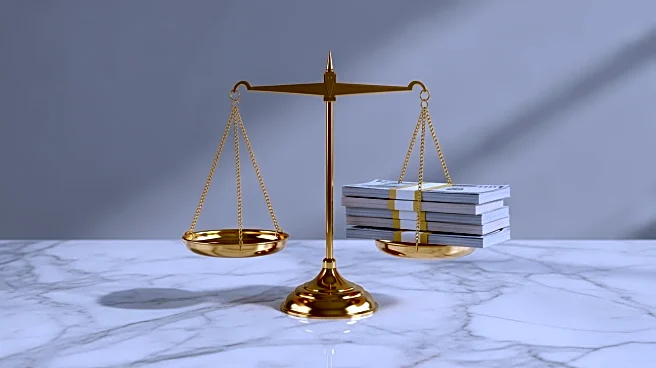What's Happening?
President Donald Trump has proposed a new stimulus-style payment to Americans, funded by tariffs on foreign imports. The proposed payment, described as a 'dividend' of at least $2,000 per person, excludes high-income individuals. Treasury Secretary Scott
Bessent has not discussed the proposal with the president, and no specific plans are in place. The payments would likely mirror the COVID-19 stimulus checks, with income limits set at $150,000 for families, $112,500 for heads of household, and $75,000 for individuals. The Committee for a Responsible Federal Budget estimates each round of payments would cost about $600 billion, while current tariffs have raised $100 billion and are projected to raise $300 billion annually.
Why It's Important?
The proposal aims to provide financial relief to middle- and lower-income Americans facing inflation and economic uncertainty. However, the feasibility and legality of these payments are uncertain, as they would require Congressional approval. The potential impact on the federal budget and trade relations is significant, with experts warning that tariff revenues are ultimately paid by U.S. importers, who may pass costs to consumers. The proposal could add $6 trillion to the national deficit over a decade if continued annually.
What's Next?
The proposal's future depends on Congressional approval and pending Supreme Court rulings on the legality of Trump's tariff strategy. Without legislative support, the payments cannot proceed. Public debate and policy clarification are expected as midterm elections approach.
















